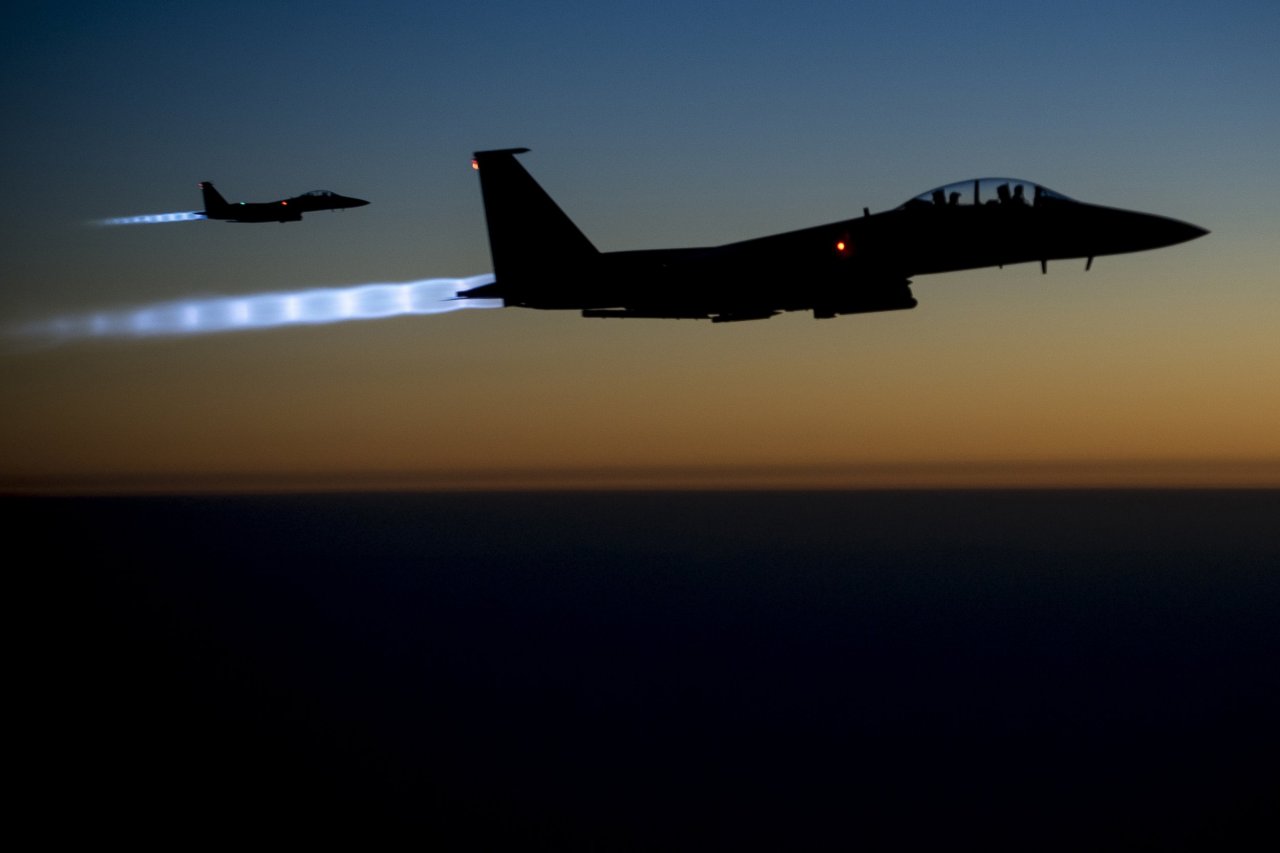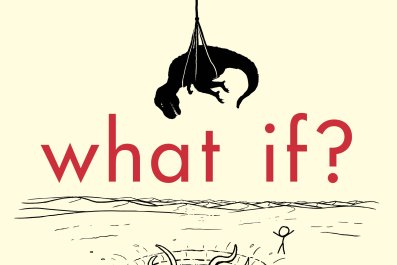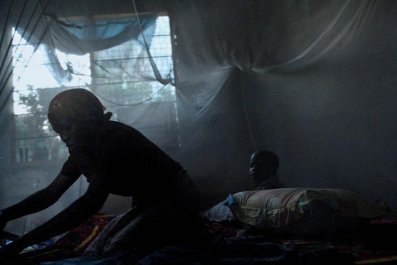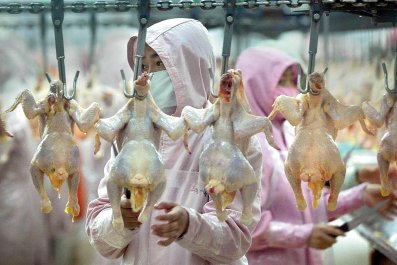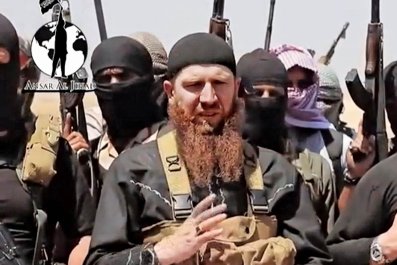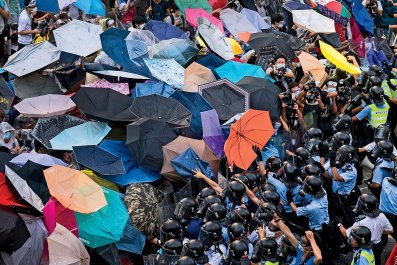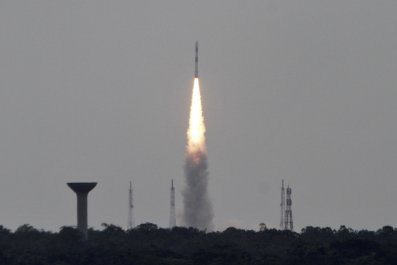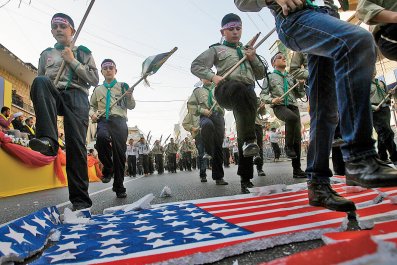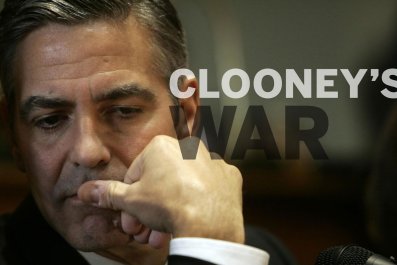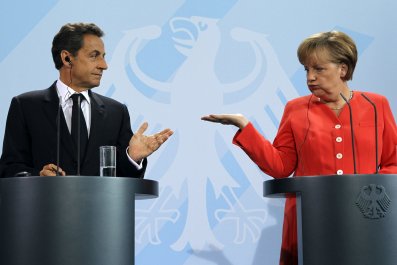It will come as little comfort to President Obama and his European allies, but there is widespread agreement over how the jihadist Islamic State (Isis) can be defeated in northeast Syria and northern Iraq.
Whether it's a view advanced by Kurdish commanders on the Turkish border, local police in northern Iraq or a former Chief of the UK defence staff in London, the consensus is that troops on the ground are required – and fast.
Even David Cameron, Britain's Prime Minister, accepts that Isis's bloody advance can not be halted from the air alone. But, after that, the consensus crumbles. Any boots on the ground must not be British, according to Cameron. "They should be Iraqi troops, they should be Kurdish troops,'' he said.
But on the dusty, battle-weary outskirts of the city of Kirkuk in northern Iraq, Brigadier-General Sarhad Qadir, commander in chief of Kirkuk Province Police Forces, told Newsweek: "We appreciate all the air strikes . . . we are thankful for this help and support. However, these air strikes must keep escalating in numbers and ground troops must be provided with military aid to drive out Isis from their strongholds.''
Others are less appreciative – and more strident. "The US air strikes in Syria have been ineffective so far because the United States is not making joint efforts with the Syrian opposition troops on the ground,'' said Sefqan Ciya, a field commander of People's Protection Units (YPG), a Kurdish group fighting Isis in Kobane.
"We in the YPG have been fighting alone for a year, holding out against Isis in Kobane, but the US and the international community are ignoring this fight. The reality is that Isis will not be stopped in northeast Syria unless the international community, above all the US and EU countries, provide us with adequate military aid and cooperate with us in order jointly and effectively to target and attack Isis positions."
Lord Richards, who retired last year as chief of the defence staff – Britain's most senior soldier – has said much the same thing. "Ultimately you need a land army to achieve the objectives we've set ourselves – all air strikes will do is destroy elements of Isis, it won't achieve our strategic goal. The only way to defeat Isis is to take back land they are occupying which means a conventional military operation. The only way to do it effectively is to use Western armies, but I do understand the political resistance."
Richards said the war could 'go on forever' unless a 100,000-strong army can be trained and deployed.
Even the effectiveness of destroying elements of Isis is being questioned by Kurdish commanders. Sefqan Ciya said that US air strikes have targeted "empty" Isis bases in the northeastern provinces of Deir Ezzor and Raqqa, while Isis positions with "a heavy presence of arms that are visible on the outskirts of Kobane are not being targeted by the US".
The CIA estimates that Isis has amassed 31,000 fighters, many of them recruited from Europe – but Obama said last week that the agency's figure may be far too low. The most effective and sustained resistance to Isis fighters has come from Kurdish peshmerga forces, who number around 35,000.
Isis currently has control of 13,000 square miles of land, an area roughly the size of the Netherlands. It is looking to expand into Iraqi Kurdistan, as well as consolidating its position close to the Turkish border at Kobane.
Ayman Abdul Wahab (known as Abu Fadeel) is in charge of a small group of fighters called Eastern Tawhid Brigade, which is affiliated with the Free Syrian Army (FSA). Speaking to Newsweek from between the town of Manbij and Kobane, he contradicted Pentagon claims that an Isis building and two "armed vehicles' have been been destroyed.
"We have seen foreign planes in the sky but they hit no Isis targets. The air strikes hitting the Deir Ezzor province and surrounding areas have been entirely inadequate because no cooperation has been made with the opposition armed forces of FSA brigades and YPG [Kurdish] forces on the ground," he said.
"We just cannot understand why the US air strikes target oil fields rather than the Isis forces that have regrouped in the open and flat fields on the outskirts of Kobane.''
Wahab and other commanders in the area regard Kobane as crucial in the war against Isis. "If Isis wins in Ayn Al-Arab (Kobane) then it is going to be a triumphant victory for them and they would not stop their advance until they assume control of all northeast Syria. But if they lose here then it is going to be a great defeat for them because they have all of their military might gathered here."
Sefqan Ciya said that because US air strikes have concentrated on the Deir Ezzor and Raqqa provinces, more Isis troops have been deployed in Kobane because Isis commanders regard it as a safer option, especially as the Pentagon is desperate to avoid civilian casualties.
Hundreds of Raqqa residents fled their homes after Obama announced that the US would launch air strikes. Those who remained are now serving as human shields for Isis soldiers, according to Abu Ibrahim Raqqawi (a pseudonym), who, with a group of friends, has set up a website 'Raqqa Is Being Slaughtered Silently'.
While continuing to run the city, which it took over last year, "Isis moved all their women and children to the suburbs and to safe places, while their fighters began sleeping in the flats which they took from the citizens of Raqqa – Christians and people who have fled and people with more than one flat. They are using people as human shields by staying with them,'' said Abu Ibrahim.
His solution is unlikely to win the backing of Obama in Washington or Cameron in London.
"Bomb the Assad regime first and after that give the FSA weapons and we will use them to fight Isis,'' he told Newsweek. "If it's just air strikes, it won't do anything."



